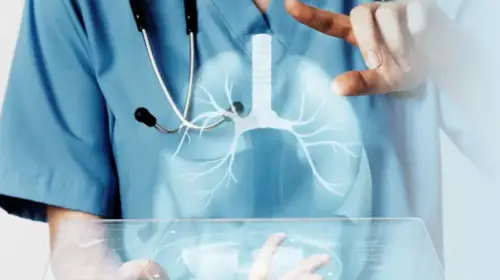

Lung Transplant cost in India starts from US $25,000 and varies depending on your medical history and condition, comorbidities-if any, surgeon, hospital and the city where you choose to get the surgery done.
An important expense when it comes to your Lung Transplant is going to be your Surgeon's fees. IndiCure recommends experienced, skilled, board-certified surgeons who are capable of delivering successful surgeries. The charges may vary depending on the experience of the surgeon, popularity, and the approach to treatment.
With the hopes of improving patient care, new techniques and technologies are often introduced to the surgical process. Such innovative advancements in the surgical approach can increase costs.
Having your Lung Transplant in an accredited surgical facility by skilled and qualified medical staff is a critical factor. Moreover, the geographical location of this facility also affects the quote. But, IndiCure provides you with a projected estimate that will be affordable.
The surgery-related expenses include the pre- and post-surgical expenses. The pre-surgical expenses are associated with the age and medical condition of the patient and thus the number and type of investigations required. Post-surgical expenses may include prescription medications and follow-up consultations.
We at IndiCure, understand that you travel with a budget in mind and do not like to be greeted by surprises after arrival in India. We thus club all these expenses and give you the package cost that is inclusive and affordable at the same time.
Your case manager shall give you an estimated cost of your surgery after discussing your medical reports with the surgeon. The final cost, however, shall be confirmed after your consultation with the surgeon.

We Help you Choose the Right Treatment, Surgeon & Hospital

We Arrange Video/Telephonic Consultation with the Surgeon

We Assist you with Visa & Accommodation

We Receive you at the Airport and Drop you at Hotel/Hospital

We Assist you the at Hospital & Provide Post Operative Support
In fact, we have Special Negotiated Rates with the Hospitals and you can avail Discounted Rates when you choose to Travel with IndiCure.
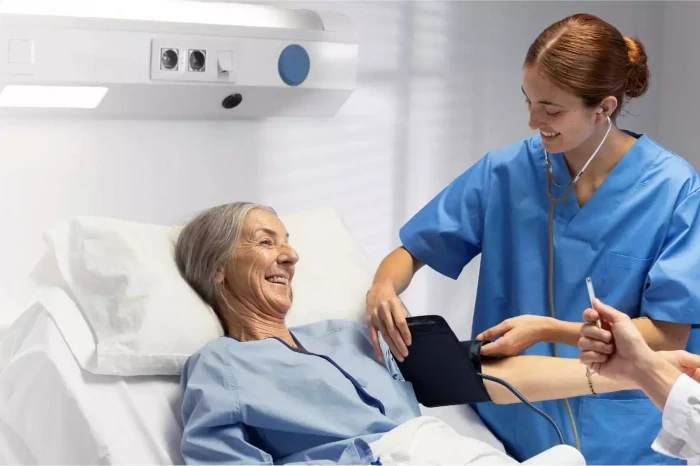
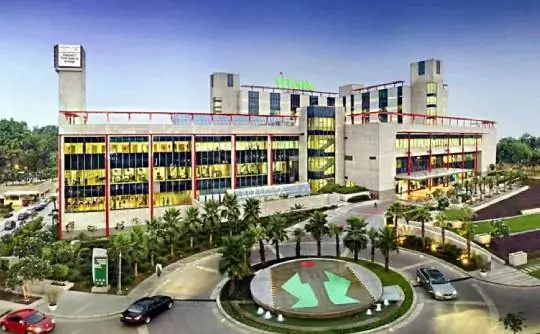
Gurgaon
Fortis Memorial Research Institute (FMRI), the flagship hospital of Fortis Healthcare, is a multi-specialty, quaternary care hospital and is counted among the best hospitals in India and the world. The hospital is considered as "Mecca of Healthcare" and a referral hospital, not only in the entire Asia Pacific but much beyond.
The hospital boasts of an enviable International faculty- the clinicians considered to be among the best doctors in the world and even specialty nurses offer nothing but the best in clinical care. The hospital has the most modern, state-of-the-art, cutting-edge technology in the hands of the most technically sound technicians, who offer clinical excellence beyond comparison.
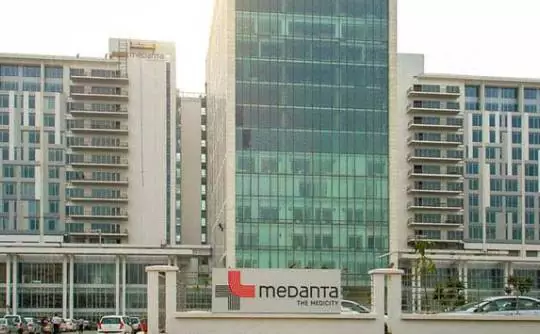
Gurgaon
The Medicity is one of India's largest multi super-specialty institutes located in Gurgaon, National Capital Region (NCR-DELHI). Founded by one of the most renowned cardiac surgeons in India, Dr. Naresh Trehan, Medanta was established with the aim to provide the highest standards of medical care to patients backed by clinical research.
Spread across 43 acres, the institute includes a research center, medical and nursing school. It has 1250 beds and over 350 critical care beds with 37 operation theatres catering to over 20 specialties. Backed by the latest and most advanced technology, the institute is counted among the best medical institution in the world and attracts lots of patients from across the globe.
A lung transplant is a surgical operation in which a diseased or failing lung is replaced with a healthy lung from a deceased donor. A lung transplant is intended for those who have tried alternative medications or treatments but still haven't seen enough improvement in their condition.
Your body may struggle to get the oxygen it requires if your lungs are unhealthy or damaged. A range of disorders and ailments can harm your lungs and make it difficult for them to function properly.
The following are some of the more common causes:
Medication or specific breathing devices can often be used to address lung problems. However, if these treatments fail or your lung function becomes life-threatening, your doctor may recommend a single-lung or double-lung transplant.
In addition to a lung transplant, certain people with coronary artery disease may require a surgery to restore blood flow to a blocked or narrowed artery in the heart. People with significant heart and lung diseases may require a combined heart-lung transplant in some situations.
There are 3 main types of lung transplant:
Single lung transplant - A single lung transplant involves removing a single damaged lung from the recipient and replacing it with a lung from a donor; this is commonly used to treat pulmonary fibrosis, but it is not suitable for people with cystic fibrosis because infection will spread from the remaining lung to the donated lung.
Double lung transplant - A double lung transplant, in which both lungs are removed and replaced with two donated lungs, is the most common treatment option for persons with cystic fibrosis or COPD.
Heart-lung transplant – A heart-lung transplant, in which the heart and both lungs are removed and replaced with a donor heart and lungs; this is frequently advised for persons with severe pulmonary hypertension.
Unfortunately, the demand for lung transplants vastly outnumbers the supply of accessible donated lungs.
A lung transplant will be needed when:
The following are some of the conditions that can be treated with a lung transplant:
Because the cancer could return in the donor lungs, a lung transplant would not be suggested for someone with lung cancer. If you smoke, you will not be considered for a lung transplant.
A lung transplant is a serious procedure that carries a number of risks. Before the operation, your doctor should talk to you about whether the risks of the procedure outweigh the benefits. You should also discuss what you can do to mitigate the risks.
Evaluation and matching procedure:
A lung transplant evaluation is often lengthy and cumbersome. First and foremost, the physician sends the patient to a local transplant centre where the physicians evaluate the patient. This could happen multiple times over the course of several weeks.
In addition to the patient's lung health, the doctors consider the patient's family support, financial circumstances, psychological composition, and any other medical issues.
Several tests are carried out during a lung transplant evaluation, including:
If the patient is judged to be a suitable candidate for lung transplant after the tests and interviews, his or her name is added to the regional and national organ recipient lists.
The Lung Allocation Score determines an individual's position on the list based on a complex computation that attempts to forecast two things:
When organ donors' lungs become available, people with better scores are given priority.
For foreigners coming to India for a lung transplant, it may take a few weeks to several months before you can find a donor for your lung transplant in India.
The duration of lung transplant surgery depends on the complexity of your case.
The surgery is done under general anesthesia. You will have a breathing tube inserted into your throat and connected to a breathing machine (ventilator). A cut (incision) will be made in your chest by the surgeon. An incision will be made on the side of the chest where the lung will be replaced for a single lung transplant. An incision will be made horizontally across the chest below the breasts for a bilateral sequential transplant.
You may be placed on a cardiopulmonary bypass machine, depending on your lung status and the type of transplant being performed (heart-lung machine). During the procedure, this machine delivers blood and oxygen to your body.
The diseased lung(s) will be removed and the donor lung will be implanted in its place (s). The blood arteries and airways of the new lung will be connected. The lungs will be attached one by one in a bilateral sequential transplant. Stitches or surgical staples will be used to close the incision.
The patient is shifted to an Intensive Care Unit (ICU) after the lung transplant procedure, where he/she will stay for a few days spending on the recovery.
The patient is on a ventilator until he/she is able to breathe on their own. This could take anywhere from a few hours to several days.
The patient will need to take anti-rejection medications for the rest of life in order for the transplanted lung(s) to survive in the body.
The recovery process following a lung transplant is a long and slow one that tries to gradually improve the patient's health and fitness. Resuming normal daily activities could take up to three to four months.
People who have undergone a lung transplant in recent years have had a better outlook, and this trend is predicted to continue.
Approximately 9 out of 10 persons survive a lung transplant, with the majority of these surviving for at least a year.
After a lung transplant, about 5 out of 10 persons will live for at least 5 years, with many living for at least 10 years.
We at IndiCure completely understand your concerns and it is always our endeavor to provide the best outcome for every patient. Following is the list of questions you must ask before you embark on your journey for Lung Transplant in India.
Prepare to answer questions about your:
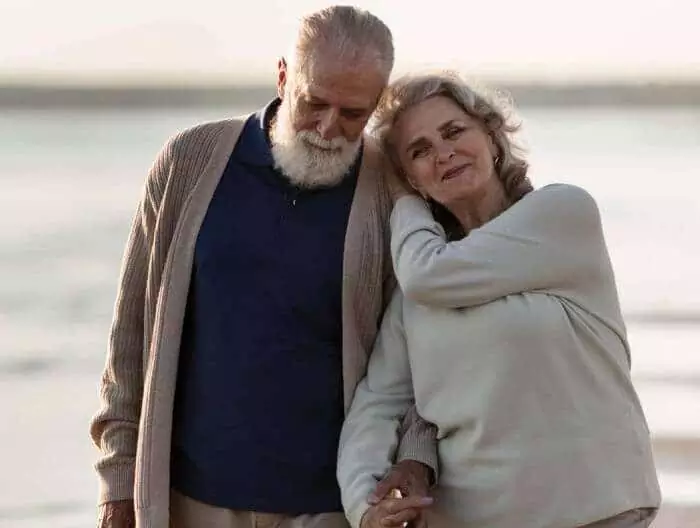
Yes, it is very much possible to get a lung transplant in India. A lung transplant is a procedure that replaces a damaged lung with a healthy lung. People with severe or advanced chronic lung diseases may benefit from lung transplants to improve their quality of life and extend their lifetime.
The procedure can be performed on one or both lungs. Lung transplants can be performed on persons of various ages, including babies and adults up to the age of 65.
Statistics put the success rate of lung transplant as 87% in India. Life Expectancy for 1 year is 80% and 5 years is 50%.
After a lung transplant, about 5 out of 10 persons will live for at least 5 years, with many living for at least 10 years. Some people have reported living for 20 years or longer after receiving a lung transplant.
Though having both lungs is desirable, living and functioning without one is doable. Even if a person only has one lung, they can still live a very normal life. However, having only one lung may impair a person's physical capacities, including their capacity to exercise.
Chronic respiratory failure is the term for when this happens. Shortness of breath or a feeling that you aren't getting enough oxygen, exhaustion (severe tiredness), an inability to move as vigorously as before, and sleepiness are all symptoms.
Enhance your medical journey to India by availing these extra services.
Traveling abroad for medical reasons may be challenging. With our experience of over a decade and working with the best surgeons and top hospitals in India, we help make your medical tour easier and safer for you. We will guide you at every step of the way and make end-to-end arrangements for your surgery, travel, and stay.
Ramandeep Dhaliwal
I had great experience having rhinoplasty through Indicure. Dr. Ruchika from Indicure has helped me in finding best plastic surgeon, answering all my questions...
Read More
Joshua Archer
My name is Joshua Archer I'm from New Zealand, bay of plenty, kawerau I opted for the bypass surgery in January 2023 but planned it in advance for 28 September found IndiCure...
Read More
Kera Ren
Absolutely loved my experience with IndiCure - from first inquiring to meeting the surgeon pre op to my follow up post op. The surgeon was extremely approachable...
Read More
Andreana Paul
Had a wonderful experience. Visited India for my plastic surgery. From sending mails, airport pickup, comfortable accommodation and, to smooth hospital appointment booking...
Read More
Brandi Luce
I had the privilege of using Indicure's services for a cosmetic procedure that I had wanted for a long time but had always been apprehensive about. Ruchika helped me...
Read More
Jade M
Indicure Health Tours went above and beyond my expectations. They helped me with every aspect of my journey and were professional, kind and caring. I was...
Read More
The content on the website (www.indicure.com) is intended to be general information and is provided only as a service. All photographs on our website of before and after results are examples only, and do not constitute an implied or any other kind of certainty for the result of surgery.
Learn about IndiCure Health Tours' comprehensive editorial policy that strives to deliver trustworthy, helpful, relevant, accurate and people-first content on medical tourism in India.
It is not medical advice and should not be taken as medical advice. It should not be used to diagnose or treat a health condition and is in no way meant to be a substitute for professional medical care. You are advised to see a surgeon in person to assess what surgery may or may not accomplish for you.
It is also important to keep your expectations realistic and to understand that all surgical procedures carry risks and should never be taken lightly.